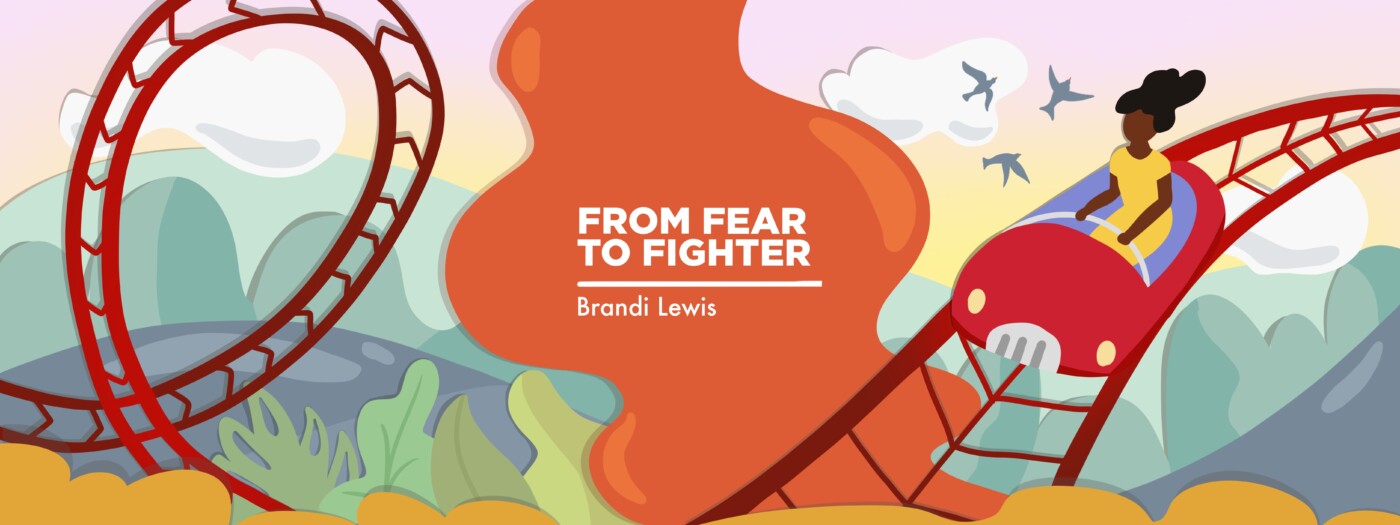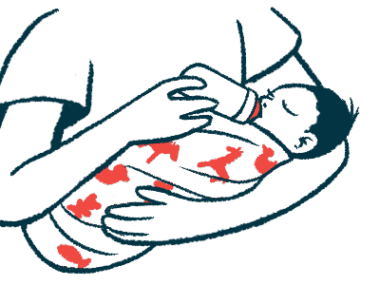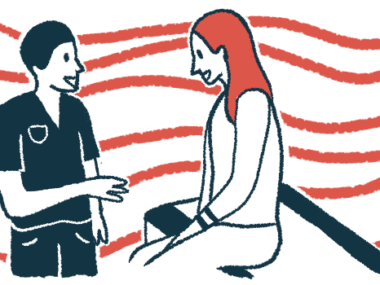What I learned from putting on a mask before the era of COVID-19
Remembering the discomfort and loneliness of protecting myself in public
Written by |

In the thick of my aplastic anemia and paroxysmal nocturnal hemoglobinuria, my family and I boarded a plane to take a vacation. I hadn’t been on a flight in a while, other than to see my specialist in New York. We’d planned this trip to give me some normalcy. I badly needed this family vacation.
As I walked into the airport and waited in the long security line, I held my protective mask in my hand. Every time I tried to put it on, I felt as if my hand wouldn’t let me. It wanted to stay by my side, dangling back and forth.
When my mom looked at me with her eyes saying, “Put your mask on,” I finally got the courage to do it. I took a deep breath and began covering the bottom half of my face with the light pink material. As the string wrapped around my ears, I could feel the soreness it caused.
In my mind, everyone was staring at me. I made it through security and followed my family to our terminal. After I walked for a minute, the stares seemed more than in my mind; they seemed real. Everyone looked at me as if I were contagious and protecting passengers from catching anything. To keep the attention away from myself, I walked with my head low, staring at the ground with every step I took. An overwhelming feeling of loneliness took over, and questions were rambling across my mind, including “Why me?”
We boarded the plane. On the direct flight to Florida, I began to feel at ease because I had a place to hide by the window and away from the aisle. Finally, I could wear my mask in peace. After a few hours, we landed, and I knew I had to muster the strength to get through the airport masked again.
As we left the terminal, my view went back to the ground, my eyes following my feet with every step. “This is so embarrassing,” I thought to myself. Walking in front of me, my two sisters didn’t speak, but they did notice the stares. Going into sibling protection mode, they thought, “Hey, only I can pick on my sister. Not you!”
My sisters started staring back at those who glanced my way. Picture me, walking in the middle of two protective sisters, while they walked a few steps ahead, staring back in disgust at everyone looking at me. As we left the airport, I smiled. It was great not to feel alone, even if my sense of happiness, joy, love, and protection lasted for a brief minute. I left the airport with two bodyguards and no more loneliness.
Lessons from early masking
Before COVID-19, masks were not an everyday thing like they are now. While they’re less common now than at the height of the pandemic, people still usually don’t stare. It’s easier for those who are masked go about their day without feeling lonely or different.
I still own that light pink mask. One day, I forgot the mask I currently use and had to use the pink one in my car. As I slid it on my face, the smell brought back memories. That made me remember the hard times, the stares, the loneliness, and the new normal I had to accept.
I’m weirdly thankful for the normalcy of masks today and for the protection they offer. I don’t think I’ll ever forget those early memories of masking up. As each day brings me further into my chronic illness journey, those uncomfortable masked moments force me to deal with the times when life isn’t so comfortable.
As a research professor, author, and podcaster Brené Brown wrote:
“I want to be in the arena. I want to be brave with my life. And when we make the choice to dare greatly, we sign up to get our asses kicked. We can choose courage, or we can choose comfort, but we can’t have both. Not at the same time.
“Vulnerability is not winning or losing; it’s having the courage to show up and be seen when we have no control over the outcome.”
Note: PNH News is strictly a news and information website about the disease. It does not provide medical advice, diagnosis, or treatment. This content is not intended to be a substitute for professional medical advice, diagnosis, or treatment. Always seek the advice of your physician or other qualified health provider with any questions you may have regarding a medical condition. Never disregard professional medical advice or delay in seeking it because of something you have read on this website. The opinions expressed in this column are not those of PNH News or its parent company, Bionews, and are intended to spark discussion about issues pertaining to paroxysmal nocturnal hemoglobinuria.






